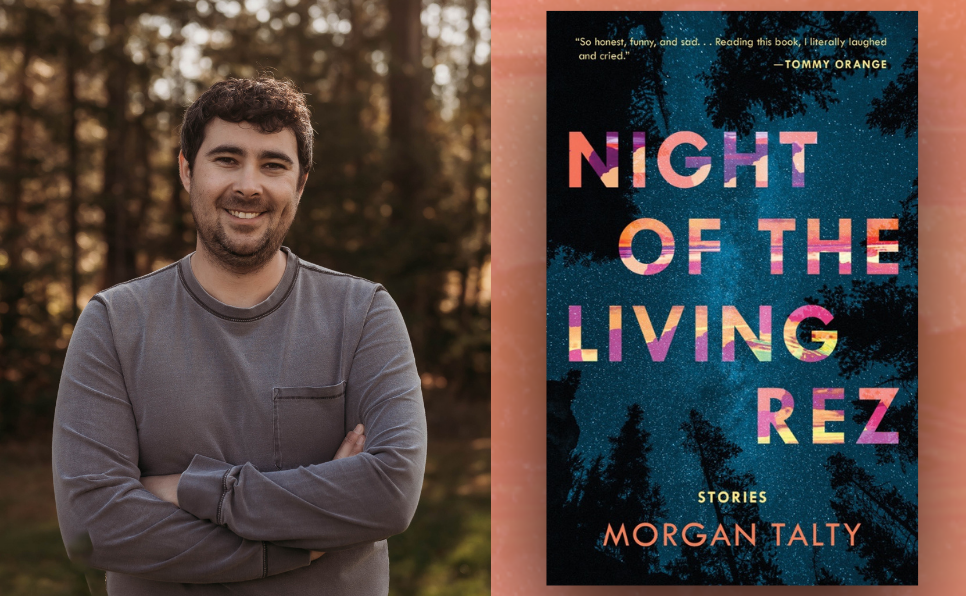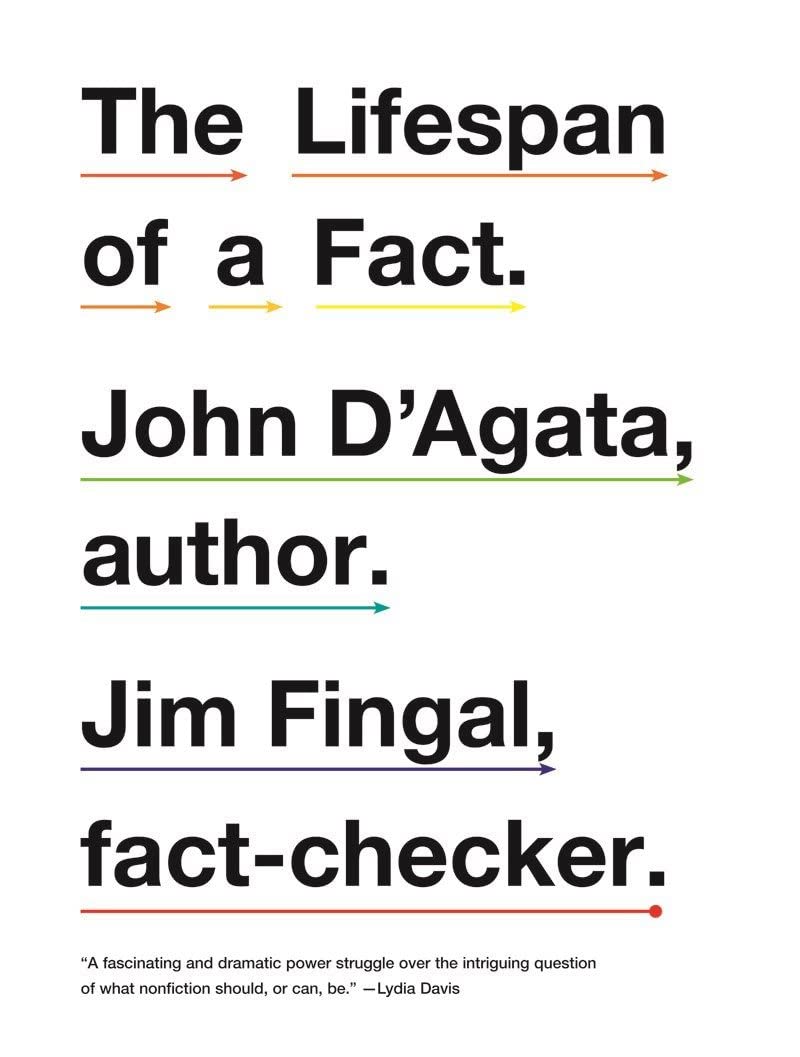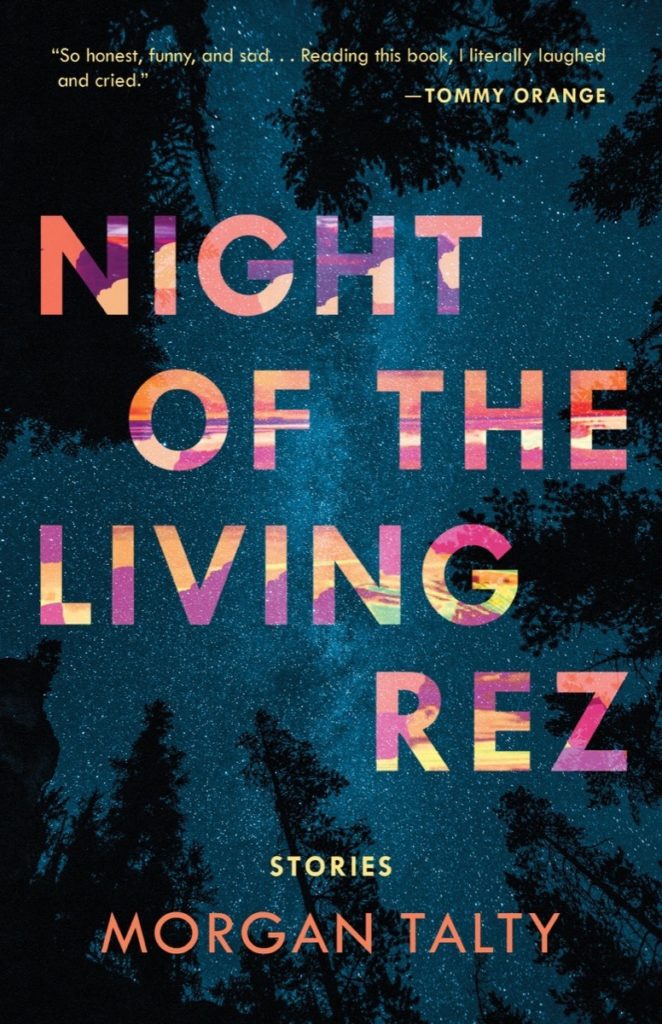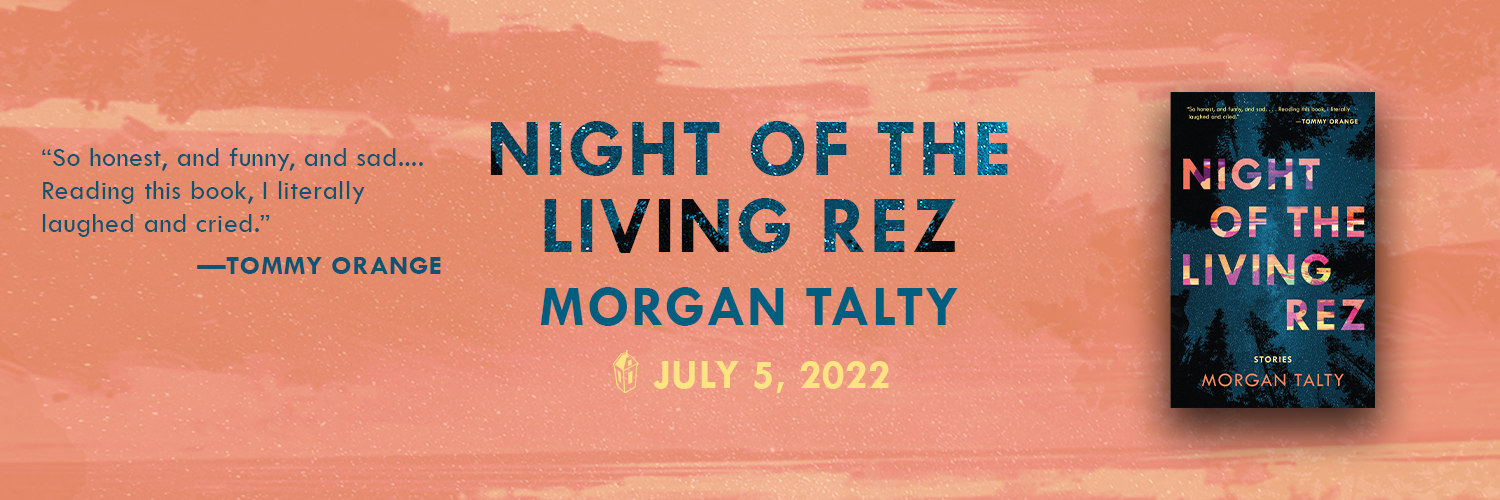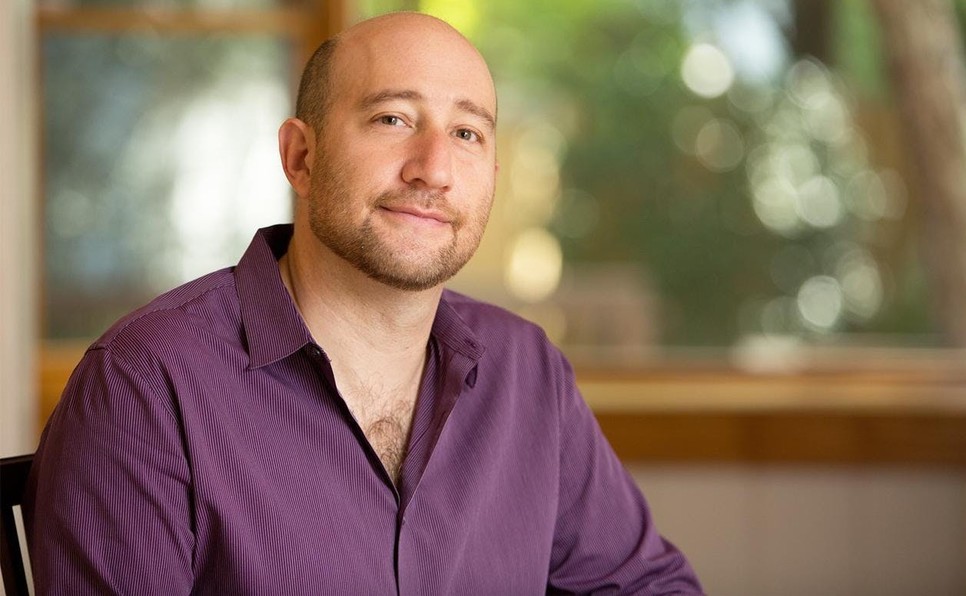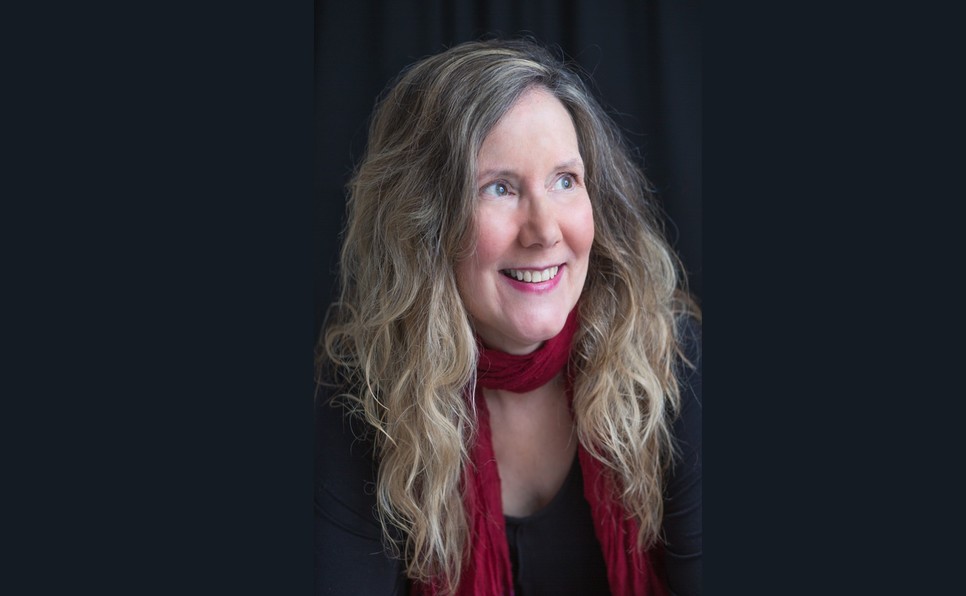I am so thrilled that my first piece for the Aspiring Author interview series is with author Morgan Talty, whose forthcoming collection Night of the Living Rez, will be published by Tin House Books. My introduction to Morgan was through the Stonecoast MFA low-residency program, where he returned as a faculty member after attending as a student. Our virtual circles kept colliding beyond Stonecoast. Both he and I write about lesser-known regions and cultures of Maine. I was an undergrad at the University of Maine in Orono, not far from where Morgan grew up in the Penobscot Indian Nation. We both placed as Fiction Finalists in the Maine Writers and Publishers Alliance 2021 Maine Literary Awards, which Morgan then went on to win. We also share the connection of both having served as Editor-in-Chief for the Stonecoast Review during our time in the Stonecoast program. I am continually inspired by Morgan—not just by his writing, which is resonant, gorgeous, and deeply human, but also by his gratitude for each of his successes, his abiding love of storytelling, and his overall decency.
How did you get into writing?
Ever since I was young, I was a storyteller. As I got older, I suppose it was really the only thing I could see myself doing. Well, and also teaching writing, which I love just as much as writing.
Who are your literary inspirations and mentors?
There’s so many to list! Any Native writer/storyteller who has come before me: Louise Erdrich, Joy Harjo, Tommy Orange, Louis Owens, N. Scott Momaday, David Treuer, Thomas King, Richard Van Camp, and I could go on. When it comes to non-Native writers: Anton Chekhov, Raymond Carver, Colson Whitehead, James Baldwin, George Saunders, Karen Russell, and so many more. I learned a great deal from these writers’ works, but I also learned a great deal from early mentors.
What is your writing routine?
It depends. If I’m working on a project, I’m doing it every day (usually in the morning, and then in the evening, when time permits, I go through that day’s material). With the exceptions of Saturday and Sunday—but sometimes I can’t help it. When I’m not in the middle of a project, I tend to spend at least a few days a week working on a story or revising/trying to figure out an unsuccessful draft. I also tend to get up and pace a lot. I swear, the best ideas happen when you can’t write them down immediately.
What books on writing and/or publishing do you recommend?
Reading Like a Writer by Francine Prose.
The Art of Fiction: Notes on Craft for Young Writers by John Gardner.
The Lifespan of a Fact by John D’Agata and Jim Fingal.
What is the best piece of writing advice you’ve ever received?
Make something inexplicable happen, and then work to reconcile it, to make sense of it.
What advice would you give to aspiring authors looking to get published?
Keep submitting. That’s the only way to get where you want to get. I spent eight years submitting until a magazine finally picked up a story.
How did you find your literary agent?
A friend/mentor actually introduced us. I had an agent prior to Rebecca Friedman, but we parted ways. Rebecca then read my manuscript and was hooked and wanted to represent me.
Describe your relationship with your agent
She’s kind of like an older sister. She feels like family, like we’re both in this journey together to get my work out there, and that she’s doing everything she can to champion it.
Tell me about your experiences as an editor, first for the Stonecoast Review and now for The Massachusetts Review. How does your work as an editor inform your own writing and your approach to publishing?
In my view, a writer and an editor are two different entities. The writer is the Artist, and the editor is the…I don’t even know. The person who helps elevate the art to its full potential? The person who helps get the work where it needs to be—either in the context of the story’s genre or the magazine’s aesthetic? Regardless, I tend to approach my own work as a writer—looking to uncover some truth. I think I do turn on my editor side eventually, and I’m able to help elevate the piece, but I suppose I’m still acting like a writer, if that makes sense. My approach hasn’t quite changed, I don’t think, but I’ve just gotten better at seeing things I might have missed.
Your forthcoming debut story collection, Night of the Living Rez, has received a huge amount of fanfare. Could you talk about that? Does so much attention on your work feel like success, or pressure? Or maybe both?
It definitely feels like success! I mean, who knows how the book will do when it comes out—that certainly is added pressure, but to alleviate the pressure I just write and work on other projects. I think it’s important that writers who have books coming out keep working. Of course, celebrate! But the ride can be a bit tiring, so take care of yourself and your other writing. I suppose I do worry about how the book will do, but it usually doesn’t last, because I just remember that the goal is to produce meaningful work. And that’s what I want to do, and I hope readers find it meaningful as well.
Do you suffer from Imposter Syndrome?
Yes. Thanks for the reminder.
Can you talk about your experience querying a collection rather than a traditional novel? What advice would you give writers trying to make their debut with a collection?
Good luck. Just kidding! Not really. Selling a collection is really hard, I won’t lie. I queried for about a year and a half, and most of the agents requested the manuscript. In the end, it was always the same: “I don’t know how to sell this. BUT DO YOU HAVE A NOVEL!?!?!?!”
My advice is to be adamant that you go with an agent who is interested in selling your collection, who believes in it. They are tough sells, or so I hear. When you query, you really want to think about comparable titles—what recent book is similar to yours? That can help get an agent excited.
On a related note, in general, what do you think it takes to become a successful author in the current market?
I really think being prolific in your production is important. We live in an age where texts are being consumed at a rapid rate, and I just feel like writers have to keep up. So: keep writing! But take care of yourself too.
As a member of the Penobscot Indian Nation, your work focuses on a part of Maine rarely (if ever) seen in literature. Do you feel a responsibility to represent your culture on the page? How does your identity affect your writing and your approach to publishing?
I definitely feel responsible for representing my culture. I never would say I speak for everyone, but certainly my personal experience as an Indigenous person is a point of interest in my work. So, my identity definitely affects my writing—problems that are unique to being Penobscot end up being situations or conflicts in my works. And, when I can, I also try to find the universality in those situations.
We’ve never met in person, but you have been such a great social-media supporter for me and my writing career. Talk to me about how important it is to encourage and celebrate, rather than compete with, fellow writers
Thank you for those words! I’m glad I’ve been able to help. It’s so important to lift other writers up, especially emerging writers. I make it a point to always try and help writers, whether it’s reading query letters, helping make connections, or offering advice. I really just want to help writers get their stories out there, and I’ll do anything I can to make that happen. We have to have each other’s backs. It’s a hard enough gig as it is.
For such a young writer, you are extremely prolific. It seems you always have an upcoming publication. How do you balance the business end of writing—researching, submitting, promoting, etc.—with the craft?
I think I keep both of those separate in my mind. That’s the first thing. There’s the writing, and then there’s the business. Unless I was asked to write something, I never think about where a story might end up when I’m writing and revising. It’s only when I “finish” the story that I start to look for journals that might like it. So, I balance it that way: keeping tabs on my writing as a form of art, using it to come to some truth or understanding, and as a business, finding places to get that art out there. Then I just cross my fingers.
All this success might go to a person’s head, but you seem incredibly humble, good-humored, and gracious. What keeps you so sane?
Thanks. I’m happy that’s how I’m seen! The fact that this career is so uncertain is probably what keeps me so sane. You can’t quite control a writing career, so why not try to be as grounded as possible? Why not strive to understand the work you’re doing and why you’re doing it, rather than what may come of it? It can be hard—I’ll admit that—to stay sane with so much uncertainty. But the fact that there are so many other writers out there doing the same work I am doing helps make it better.
About Author Morgan Talty
Morgan Talty is a citizen of the Penobscot Indian Nation where he grew up. He received his BA in Native American Studies from Dartmouth College and his MFA in fiction from Stonecoast’s low-residency program. His story collection Night of the Living Rez is forthcoming from Tin House Books (2022), and his work has appeared in Granta, The Georgia Review, Shenandoah, TriQuarterly, Narrative Magazine, LitHub, and elsewhere. A winner of the 2021 Narrative Prize, Talty’s work has been supported by the Elizabeth George Foundation and National Endowment for the Arts (2022). Talty teaches courses in both English and Native American Studies, and he is on the faculty at the Stonecoast MFA in creative writing. Talty is also a Prose Editor at The Massachusetts Review. He lives in Levant, Maine. To learn more about Talty’s work, visit his website.
Recommended reading
Here at Aspiring Author, we love recommending bestsellers and fawning over hot new releases. On this real time recommended reading list, you will find a list of top rated books on the publishing industry, craft, and other books to help you elevate your writing career.

